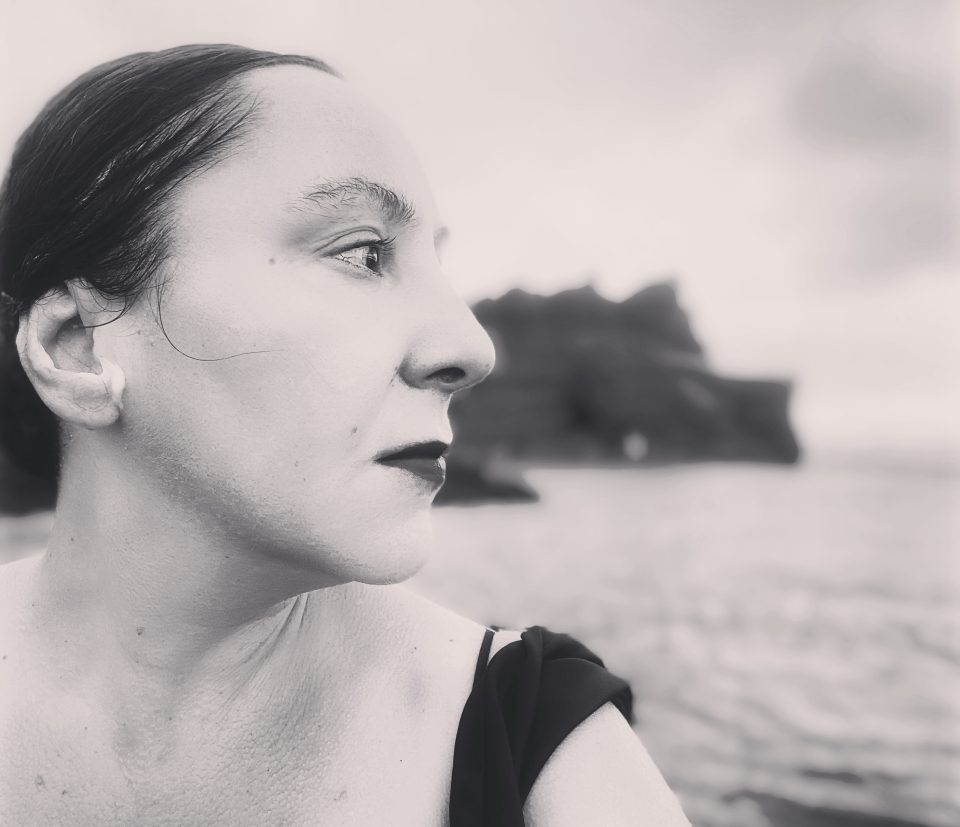 Vow. BlazeVOX [Books], 2013. Available here.
Vow. BlazeVOX [Books], 2013. Available here.
Praise for Vow:
Kristina Marie Darling’s latest collection, Vow, stunningly enacts the ominous anachronism of the word vow itself—“promises committing one to a prescribed role, calling, or course of action, typically to marriage or a monastic career.” In this airy, white-spaced book of veils and concealment, the wordless invisibilities of the institution of marriage are glimpsed, but only from the margins, in deft footnotes to blank/missing text and haunting fragments—situating the ghostly bride behind the battlements of a moldering mansion, or castle, filled with endlessly locked rooms from which there is no escape barring catastrophes such as fire, or suicidal leaping. Evoking the Gothic domestic spaces of Jane Eyre and Wuthering Heights, Vow startles and speaks through the uncanny silences of white space, echoing the erasure and effacement of the wedding gown, the growing silences of the marriage hidden behind the vow, as—powerfully, heartbreakingly—the frozen couple locked inside desperately make “paper wings and little box kites, hoping they’d bear us over the iron gates.”
—Lee Ann Roripaugh, Author of On the Cusp of a Dangerous Year
In Kristina Marie Darling’s Vow, a bride maneuvers in a locked house as it goes up in flames. Vow has the brilliance we’ve come to expect from this author, inventing and mastering forms—footnote poems, expansive sequences. Where Bachelard claims a home is memory, Darling’s poetics of space presents the house on fire, inaccessible and full of mystery. The house is a structure one is in yet all the while kept from and intimacy seems to be in the burning embers, the cordoned off spaces. In these poems, emotion feels as though it could physically move away from private life. Bluebeard meets Synechdoche, New York with the eerie sense of the self as a brooding other, the one who watches as everything burns. Our house became a small fortress. Every night we take turns stoking the fires.
—Farrah Field, Author of Rising
How name this strange invention, this kaleidoscopic script, this lyric aggregate? Kristina Marie Darling’s Vow is one part the salvaged fragments of a gothic romance, one part the careful records of a fastidious archivist of the imaginary, and one part meta-documentary. Above all, this book spotlights the nature of vows, how a vow “reveals, harbors, and conceals, and how “we are made and unmade by those we love.” Truly, this book projects this making and unmaking in every aspect, of the wedding gown that is painstakingly tailored only to have its “endless rows of white stitching” undone with a pair of scissors, of the house that is inhospitable, “a corridor filled with locked rooms,” of the vows themselves that the lovers “bury one by one,” and finally, of the book itself, with its innovative approach to form—its fragments, footnotes, appendices, and erasures—that makes Darling’s themes echo through the hollows, haunting and delightful.
—Katy Didden, Author of The Glacier’s Wake
In Kristina Marie Darling’s Vow, both text and subtext paint the fraught institution of marriage, particularly the subjectivities of the bride’s several selves. Written in candle, tale, and glass, the book “reveals, harbors, conceals” in an exciting new collection.
—Carmen Gimenez Smith, Author of Goodbye, Flicker
Reviews of Vow:
“Darling’s form is experimental, but the presentation of imagery and the raw pain displayed in the speaker’s voice approach the classic emotional expression of the traditional lyric…This is a deft addition to Darling’s growing catalog.”-The Mid-American Review.
“Vow is a compelling text, narratively and visually. While it is a retelling of a familiar story, that story is set in a dreamscape somewhere between myth and cinema, poetic language always flashing in the slipstream.”-Stirring: A Literary Collection.
“A lovely lyric constructed around a rather pessimistic scene (and indeed, a promise), the short, dense collection Vow intrigues, in part for the density of the work; stitched and stretched and torn apart.”-Rob McLennan, author of Grief Notes.
“When most think of feminism and fragmentation, Gertrude Stein comes to mind, but it’s important to look into other women who use this brilliant technique: H.D., Mina Loy, Susan Howe, Kathy Acker, etc.-the lineage that has led to the brilliant mind of Kristina Marie Darling.”-Split Lip Zine.
“Darling’s keen use of the visual, and play with punctuation are a major role in her crafting of this mystifying story of a woman wrestling with culturally stated wedding traditions. With her void and remarkable delicate verbiage and daring narrative, Darling forces the confronting of such traditions in readers’ own minds and histories. And with that, perhaps asking, how else can such institutions be defined or carried out, without becoming ablaze with fraught? As Darling exemplifies, let us examine the margins, push the boundaries and maybe we will see.”-Gently Read Literature.
“Kristina Marie Darling sets the imagination ablaze in her newest work Vow. With a chorus of dark melodies, words come as beautiful colors, gripping scenes happen in mere words, and the haunting promise of the vow becomes exposed. This absorbing collection creeps down the corridors of the mind, illuminating the spaces that a broken vow leaves behind.”-The California Journal of Women Writers.
“Vow is fully realized…It is playfully mechanistic, and somewhere in that tension, its integrity just exists.”-Word Riot.
“Darling’s poetry and prose exposes the frailty of love, and marriage, but moreover of women’s moves towards liberation both within and outside of those contexts.”-The Rumpus.
“Darling uses appendices, footnotes, and other forms usually reserved for academic writing to create a book as an object of desire, which as Anne Carson explains in Eros: The Bittersweet, is desirable because of, not in spite of, its elusiveness.”-NewPages.
“Darling has written a very powerful look at what many of us have understood as truth.”-The Poetry Question.
Interviews about Vow:
The California Journal of Women Writers
Excerpts:
Additional Features:
